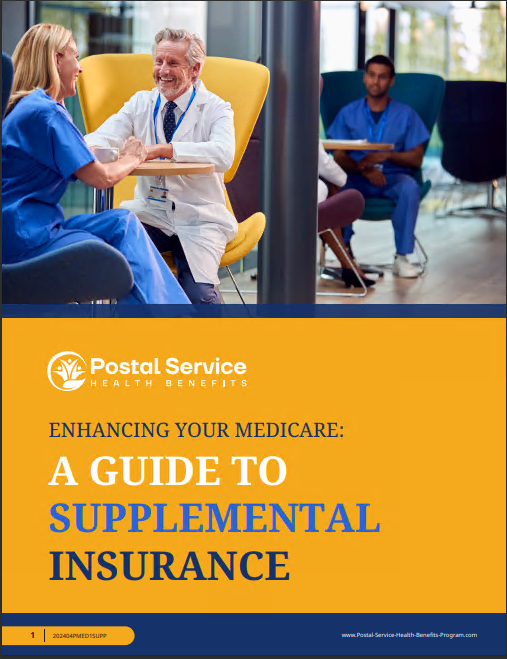Key Takeaways
- USPS retirees must understand the Medicare appeals process to effectively challenge denied claims and ensure proper healthcare coverage.
- Familiarize yourself with the five levels of the appeals process, document thoroughly, and seek professional assistance if needed.
Understanding the Medicare Appeals Process for USPS Retirees
Medicare, the federal health insurance program, provides essential coverage to millions of Americans, including those aged 65 and older and certain younger individuals with disabilities. While Medicare offers valuable benefits, there may be times when a claim is denied or a service is not covered. Understanding the Medicare appeals process is crucial for USPS retirees who wish to contest such decisions. This article aims to demystify the appeals process, providing clarity on the steps involved and how to effectively navigate them.
Initial Determination and Appeal Rights
When Medicare denies a claim or refuses to cover a service, this is known as an “initial determination.” Beneficiaries have the right to appeal these decisions if they believe the denial is unjustified. It’s important to note that there are specific timeframes and procedures to follow when initiating an appeal.
The Five Levels of the Medicare Appeals Process
The Medicare appeals process consists of five levels, each offering a higher degree of review. Here’s a breakdown of each level:
1. Redetermination by the Medicare Administrative Contractor (MAC)
Description: This is the first level of appeal where the Medicare Administrative Contractor (MAC) reviews the initial determination. This review is conducted by personnel not involved in the original decision.
Timeframe: Beneficiaries must request a redetermination within 120 days of receiving the initial determination notice.
Submission: Requests can be made using a “Redetermination Request Form” or by writing a letter that includes specific details about the claim and the reason for the appeal.
2. Reconsideration by a Qualified Independent Contractor (QIC)
Description: If the redetermination is unfavorable, the next step is to request a reconsideration by a Qualified Independent Contractor (QIC). This entity reviews the case afresh with personnel who were not involved in the previous decisions.
Timeframe: Requests for reconsideration must be submitted within 180 days of receiving the redetermination decision.
Submission: A “Request for Reconsideration” form can be used, and additional evidence can be submitted to support the appeal.
3. Hearing Before an Administrative Law Judge (ALJ)
Description: Should the reconsideration decision still not be favorable, beneficiaries can escalate the appeal to an Administrative Law Judge (ALJ) hearing. This is an independent review where the beneficiary can present their case in person, over the phone, or via video teleconference.
Timeframe: Requests for an ALJ hearing must be made within 60 days of receiving the QIC reconsideration decision.
Requirements: The amount in controversy must meet a minimum threshold (which can change annually).
4. Review by the Medicare Appeals Council
Description: If the ALJ decision is unfavorable, the next level of appeal is with the Medicare Appeals Council. This body reviews the ALJ’s decision and can either issue a final decision or remand the case back to the ALJ.
Timeframe: Requests for a review must be submitted within 60 days of receiving the ALJ decision.
Submission: A written request outlining the reasons for appealing the ALJ’s decision is required.
5. Judicial Review in Federal District Court
Description: The final level of appeal involves a judicial review in the Federal District Court. This step is available if the Medicare Appeals Council’s decision is still unfavorable and the amount in controversy meets the required threshold.
Timeframe: The request must be filed within 60 days of receiving the decision from the Medicare Appeals Council.
Key Tips for a Successful Appeal
Timely Submission
Adhere strictly to the deadlines for each level of appeal. Missing a deadline can forfeit your right to appeal.
Detailed Documentation
Provide comprehensive documentation to support your case. This includes medical records, letters from healthcare providers, and any other relevant evidence.
Clear Communication
Clearly articulate the reasons for your appeal. Explain why the initial decision was incorrect and why the service or claim should be covered.
Professional Assistance
Consider seeking assistance from licensed insurance agents or legal advisors who specialize in Medicare appeals. Their expertise can significantly improve the chances of a favorable outcome.
Understanding Denial Reasons
Common reasons for Medicare denials include lack of medical necessity, incorrect coding, and issues related to the service not being covered under the specific plan. Understanding the exact reason for the denial can help in effectively addressing the issue in your appeal.
Resources and Support
For additional guidance, beneficiaries are encouraged to visit the official Medicare website at CMS.gov. This site provides detailed information on the appeals process, necessary forms, and contact information for further assistance. Additionally, connecting with licensed insurance agents listed on relevant websites can offer personalized support and advice.
Empower Your Medicare Journey
Appealing a Medicare decision can seem daunting, but understanding the process and knowing your rights can empower you to take the necessary steps toward a successful resolution. Keep informed, stay organized, and don’t hesitate to seek professional help when needed. Navigating the Medicare appeals process requires patience and diligence, but with the right approach, you can effectively challenge unfavorable decisions and secure the coverage you deserve. Remember, the goal is to ensure that you receive the necessary healthcare services without unnecessary financial burden. Stay proactive, informed, and supported throughout your Medicare journey.
Contact Information:
Email: [email protected]
Phone: 4635555678







